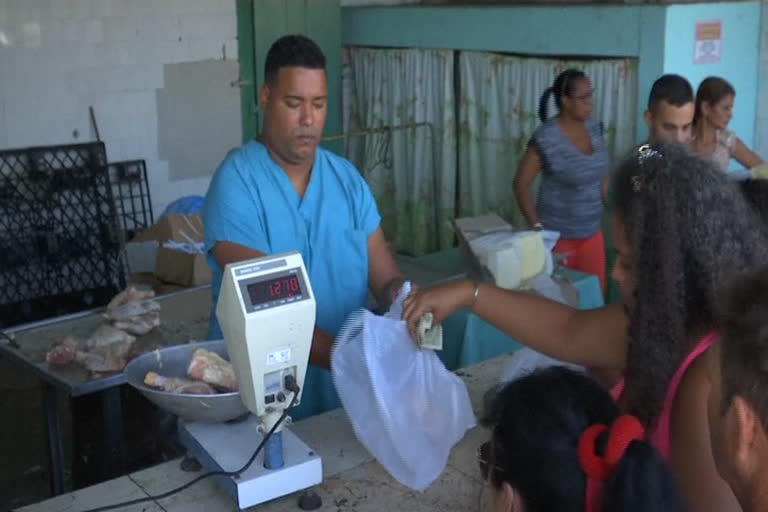Bauta: After two decades of relative stability fueled by cheap Venezuelan oil, shortages of food and medicine have once again become a serious daily problem for millions of Cubans.
According to experts a plunge in aid from Venezuela, the end of a medical services deal with Brazil and poor performances in sectors including nickel mining, sugar and tourism have left the Communist state 1.5 billion US dollars in debt to the vendors that supply products ranging from frozen chicken to grain mill equipment.
Across the country, stores no longer routinely stock eggs, flour, chicken, cooking oil, rice, powdered milk and ground turkey, among other products.
For unclear reasons, the price of pork has doubled in many areas, to nearly three dollars a pound (0.45 kilograms) in some cases.
No one is starving in Cuba, but the shortages are so severe that ordinary Cubans and the country's highest leaders are openly referring to the "special period," the years of economic devastation and deep suffering that followed the collapse of the Soviet Union, Cuba's Cold War patron.
The Trump administration is working hard to push Cuba toward an economic crisis.
Washington has sanctioned Venezuela's oil industry and the shipping companies that move Venezuelan oil to Cuba.
On Wednesday, U.S. National Security Adviser John Bolton announced further measures against Cuba and its allies, including a new cap on the amount of money that families in the United States can send their relatives on the island and new restrictions on travel to Cuba.
For decades, such U.S. policies were aimed at uprooting the Castro-led socialist state by creating an economic collapse and popular uprising.
Read more:Consumer confidence recovers in April: Study
"They (sanctions) will have an impact at a particularly delicate time for the country's external finances," Ricardo Torres Perez, an Economist at the Study Centre of Havana University said.
"This is a factor which provides a high probability that the economic situation will get worse in the coming months" he added.
Despite some market-oriented reforms over the last decade, Cuba is one of the last countries on earth to maintain a Soviet-style economy, with a most business run by the state.
The agricultural sector is in shambles, requiring the country to import most of its food.
Officials say Cuba could spend 5 billion U.S. dollars on food and petroleum products this year.
Over the last 20 years, many of those billions have come from Venezuela, whose socialist government has deep ties to Cuba's and sent, sending nearly 100,000 barrels of oil daily for years.
With Venezuela's economic collapse, that number has roughly halved, along with deep cutbacks in the economic relationship across the board.
"With the situation in Venezuela getting worse, it affects us of course," Gilberto Collaso 56, a cafeteria vendor said.
The administrator of the butcher shop where Castell waited for chicken last week said she needed 80 boxes of chicken to fill that day's demand and only 40 arrived.
Fears of a return to darker times are growing. Independent experts agree with government officials that a return to the depths of the special period is unlikely.
Cuba does business with dozens of nations, hosts nearly 5 million tourists a year and Cubans can travel freely to dozens of countries on direct flights to the U.S., Europe and across Latin America.
Expatriates send billions home in annual remittances.
Still, in Havana, salt, rice, soap and detergent, powered milk, butter, toilet paper, and dry and canned goods are all going missing for days and weeks.




